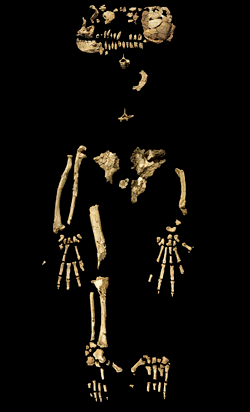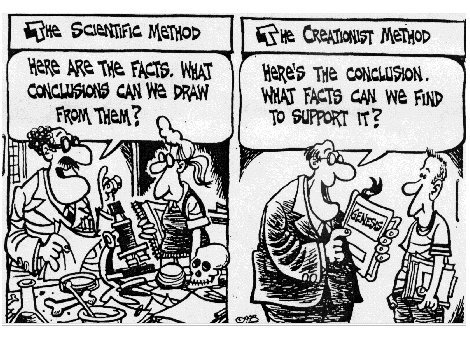No it isn't , your speculations have no place in scientific reason .
There are no homo fossils among 4m year old rocks , apart from the shape of the pelvis there is nothing human in Ardi , you can not mix bones and get a new creature .
Science is never shy to recognise an error , destroy a well constructed theory if it is proven to be wrong and make new one. Do not forget that scientists live under the "publish or perish" rule and their work is reviewed before publishing and even after that everyone and his mother will use scientific reason , experiment and observation to prove or disprove , agree or disagree .
Science is getting into the job to go out try yourself , flirt , charm and have real sex ; religion is to fantasise about sex and play with yourself instead then come out and say that you know what sex is and how it should be.


